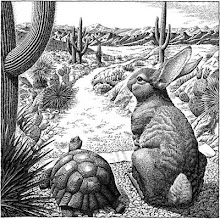He glanced down, plucked the little chip between his gnarled index and thumb, and glanced meaningfully at it. His head cocked ever so slightly to the left as he examined the chip, consciously frowning as he deposited it into an empty, glass ashtray. Death crossed his mind for the first time since his formidable years in the service of an ex-lover's father who had employed him during his reckless twenty-somethings. In the midst of emotional upheaval brought on by dissipation of this affair and loss of work he left the country, fled to Spain, and had ever since dwelt on an overly-romanticised loss of love in the leaky, decrepit apartment in Madrid. Every day for forty years he had rifled through old photographs of her and drove himself into a vacuous hole as the lines deepened on his brow. She had been exquisite. As a young man he savored each word she spoke, drank in her elegance, breathed deeply the aromatic delusion of love. He was intoxicated by the misconception that she had returned these emotions and had always since been hung over, recuperating from the loss.
For some reason he saw fit to accept the pain now. A pile of yellowed letters he had written to her shortly after his arrival in this place hid a worn though unread Bible. He lifted the book with shaking hands, plagued by arthritis and flipped pages that cracked like dry leaves underfoot in late Autumn. Pausing in the book of Job to read a few passages he couldn't help but laugh a bit at himself. The old man's suffering was a product of withdrawal from society and he became aware that his exile was but a choice made, his own open consent to welcome loneliness. There was a second chance for life awaiting him patiently which had only just become apparent. He had woken from a dream to meet life and sank to his knees before a dusty coffee table. He was made to endure this hell he created by design and he could not begin to imagine what wonder awaited him beyond the four walls surrounding him.
Lighting a thin cigarette, hand-rolled and a bit loose, the newly released prisoner peered out of his window at the courtyard below. Several Spaniards and English women, intoxicated by both the beautiful accents and rich wine, danced with the fervor of adventurous children. A stream of blue-grey smoke passed his cracked lips and dispersed outside the window. Below a well dressed young man looked up to the second story window where the old man stood. The younger of the two smiled brightly as he tipped his fashionable cap. The elder for the first time in years felt happiness spread through him and manifest itself as a wide grin. His knees went weak and his chest tightened. The young Spaniard's smile melted to concern when the old man crumpled to the cold wooden floor still smiling, musing at the idea of joining the fiesta.

The contrivance is a good one, the moral well plotted. I really like this.
ReplyDeleteI have a couple notes for you.
Is that really the proper use of the word "wanton"? I had to look it up. I think you mean wanting? That really gave me pause though, so maybe leave it. It adds a different connotation.
And I think you mean he breathed deeply of the illusionment of love? Disillusionment is afterward, when you are disenchanted, when the wool is pulled back from the eyes and the sweet, fresh aroma is seen to be a stench of rotting fruit and cat piss, and nasty mouldering things.
Also I felt his change of heart could have been explained simply. Your narrative tone only loses character once, for me, when you said "For some reason...now."
That said, Taylor, your stuffs are burgeoning with descriptive power. The reader can very richly visualize your scene and characters without thinking much about how you described them, which means you did it right.
Thank you, Gabe, for always having a bit of constructive criticism. It reminds that there is a reason to complete a rough draft and to edit that draft. As soon as I get back to a computer I will edit the errors that you've pointed out and make an effort to edit prior to posting instead of just going about it in the lazy manner I have.
ReplyDelete